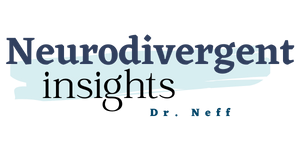Autism Acceptance in Research: How to Be Autism-Affirming
Autism Acceptance in Research
April is Autism Acceptance Month, a time to recognize the strengths of Autistic culture while acknowledging the challenges many of us experience in navigating a non-Autistic world. This month, I am breaking down what Autism Acceptance means into actionable steps with my series, "Autism Acceptance in Action." Today we’re looking at what autism acceptance in research looks like.
Autism acceptance is an essential aspect of promoting diversity and inclusion in all areas of society, including research. Unfortunately, historically, autism research has been allistic-centered, with autistic individuals being excluded or marginalized from research and little consideration given to their perspectives and experiences. However, there is a growing movement towards greater autism acceptance in research, with a focus on prioritizing Autistic voices and focusing on research connected to our well-being.
Ideas for Autism Acceptance in Research
While not an exhaustive list, the following are some practical actions that researchers and the research community can implement to work toward greater autism acceptance in research practice.
Increase Accessibility to Underrepresented Groups
It's essential to increase accessibility to research instruments to underrepresented groups such as groups with lower socio-economic access, non-speaking Autistic people, BIPOC and genderqueer people, and Autistic people from underrepresented cultures. Research must prioritize the inclusion of individuals from underrepresented backgrounds to better understand the unique challenges they face.
Consider Intersectionality
Recognize the intersections of different identities and social factors such as race, gender, and socio-economic status that can impact the experiences of Autistic individuals. Intersectionality is a critical aspect of understanding how societal structures affect Autistic individuals.
Avoid Pathologizing and Stigmatizing Language
Research must avoid pathologizing or stigmatizing language in publications and discussions. Using language that respects the dignity and diversity of Autistic individuals and avoids reinforcing negative stereotypes is crucial. Such language should reflect the positive attributes of Autistic individuals, such as our unique ways of thinking and processing information.
Prioritize the Needs and Experiences of Autistic People
It's crucial to focus on research that aims to improve the well-being and quality of life of Autistic individuals. Research must prioritize the needs and experiences of Autistic individuals to better understand our strengths and challenges.
Center Autistic Voices
Autistic individuals must be involved in research design and implementation to ensure our perspectives and experiences are included and respected. Involving Autistic individuals in research can help identify topics that are most relevant to our lives and improve the overall quality of the research.
Make Research Findings Accessible
Research must disseminate findings to the broader Autistic community in accessible formats. Research findings can be made available to the broader Autistic community through accessible language and formats that are easy to understand. By doing so, the research can positively impact the Autistic community by increasing awareness, supporting our well-being, and challenging negative stereotypes.
Example of Autism Acceptance in Research
Autism in Adulthood is an excellent example of a research journal that centers Autistic voices and provides open access to their journals. The journal strives to promote the well-being of Autistic individuals and supports research that focuses on the needs and experiences of Autistic individuals.
Summary
In conclusion, autism acceptance in research is essential to promote diversity, inclusion, and social justice. By prioritizing the needs and experiences of Autistic individuals and centering their voices in research, we can improve the well-being and quality of life for Autistic people and promote a more inclusive and accepting society. It is vital that research is accessible to the broader Autistic community and that language used in research publications and discussions is respectful and dignified. By doing so, we can build a more equitable and just society for all Autistic people.







